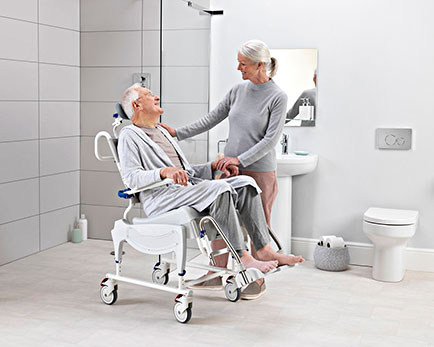At Home Health Equipment

Before purchasing any home health equipment, it is important to understand your insurance benefits. Most home home health equipment medical equipment is covered by Medicare (Part B) or your healthcare insurance. HME equipment is coded using the Healthcare Common Procedure Coding System, or HCPCS. Home medical equipment suppliers must be third-party accredited, a requirement mandated by the Medicare Prescription Drug Improvement and Modernization Act. Third-party accreditation helps to ensure the quality of service provided by home health equipment suppliers.
At Home Health Equipment is an Indiana-based distributor of various medical products. Its product line includes oxygen concentrators, liquid oxygen, and portable oxygen, nebulizers, suction machines, multiposition recliners, and electric scooters. It also offers ambulatory aids, orthopedic and bariatric equipment, and wheelchairs. The company is an authorized dealer of Pride Mobility, Convaid, and Sunrise Medical.
The quality of home medical devices varies, as some are outdated and not of the same high standard as those used in formal health care institutions. Home medical devices are often given away or sold on the internet by consumers, and the quality of these products is often questionable. Moreover, they are less likely to be maintained properly, and they often come without complete instructions or training. For this reason, consumers should carefully consider the quality of home medical equipment before purchasing it.
Home medical equipment is covered by Medicare Part B. The benefits of Medicare Part B are well known for those who need DME for independent living. However, it is vital to note that a DME supplier and physician must be enrolled with home health equipment the program to receive Medicare benefits. If these providers are not enrolled with Medicare, you may end up paying huge medical bills. But there are several options for Medicare to provide coverage for home medical equipment. So, it is advisable to shop around for the right home medical equipment supplier.
The DME company has two main types of contracts with insurance companies. One relates to home health care services, while the other focuses on selling DME. If a provider does not want to deal with the third party, then they should be aware of the conditions of their contract. Moreover, the insurance company will be the one to provide home health care services and a provider should always follow the policy terms and conditions of the insurance company.
In the case of telehealth, a medical device can be monitored remotely via wireless technologies. This type of technology provides long-term monitoring and encourages care recipients to follow their treatment regimens. Some even offer reminder alerts to remind them to perform certain actions. As with all medical devices, telehealth services need to be regulated and backed by a strong regulatory framework. The home health care industry is rapidly evolving, and the future of home health equipment is bright.
